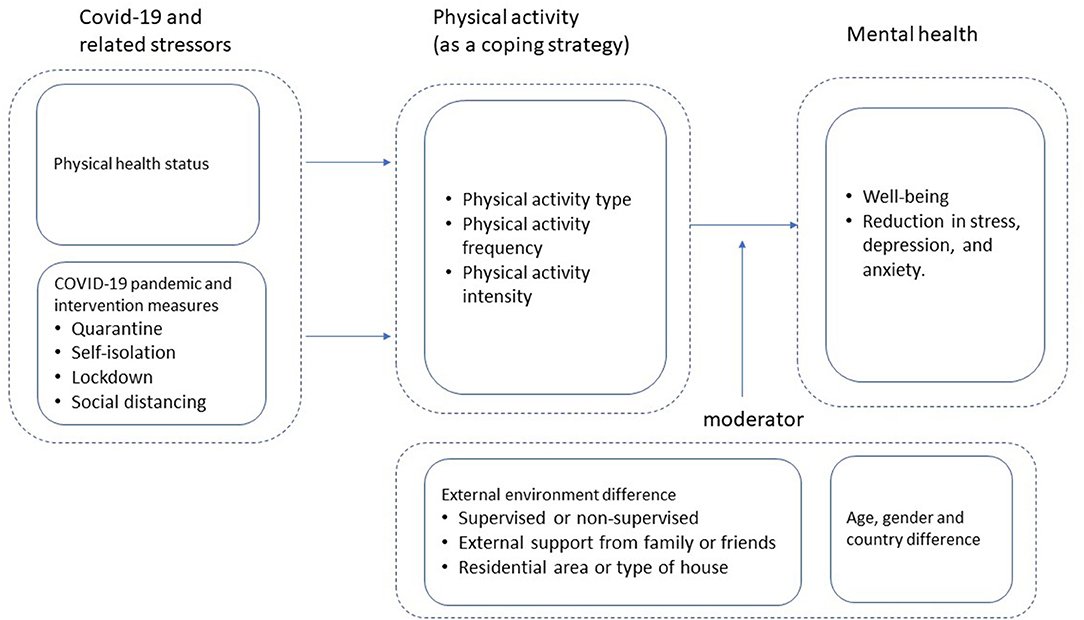Exploring the Link Between Physical Function and Health Outcomes
Our bodies are more than just their appearance—they hold valuable insights into how they function and influence our overall health. Understanding the connection between our physical attributes and health outcomes can help us make informed choices to improve our well-being. This article explores how genetics, body traits, and lifestyle choices impact health.
The Role of Genetics in Physical Traits
Genetics lay the foundation for human physical characteristics. Family history influences height, body type, muscle strength, and even metabolism. These inherited traits can impact both short-term and long-term health.
For instance, some individuals may have a genetic predisposition for a fast metabolism, affecting their ability to gain or lose weight. Similarly, genetic factors can determine susceptibility to conditions such as heart disease or diabetes. While genes play a crucial role, lifestyle choices such as diet and exercise can help overcome certain genetic limitations, proving that while genetics set the stage, our actions shape the outcome.
Body Shape and Its Effect on Health
Body shape significantly impacts health risks. Different body types—such as pear or apple shapes—can indicate varying levels of susceptibility to diseases.
- Apple-shaped individuals tend to carry weight around the abdomen, increasing the risk of heart disease, high blood pressure, and cholesterol issues.
- Pear-shaped individuals store fat around the hips and thighs, posing a lower but still present risk for metabolic disorders.
Understanding one’s body shape can guide personalized fitness and nutrition plans to mitigate health risks and maintain well-being.
The Importance of Muscle Mass and Strength
Muscle mass is a crucial factor in overall health. Greater muscle mass improves metabolism, enhances strength, and provides joint and bone protection, reducing the risk of injuries.
As individuals age, muscle mass naturally declines, leading to mobility issues. This condition, known as sarcopenia, can be countered through strength training exercises that help preserve muscle function. Maintaining muscle strength is essential for an active, healthy lifestyle.
The Impact of Bone Density on Health
Bone density refers to the amount of mineral content in bones. Strong bones prevent fractures and lower the risk of osteoporosis. While genetics play a role, lifestyle choices significantly influence bone health.
Weight-bearing exercises, a calcium-rich diet, and adequate vitamin D intake are essential for maintaining strong bones. By prioritizing bone health, individuals can reduce their risk of fractures and age-related skeletal issues.
Skin Type and Health Risks
Skin type can affect vulnerability to environmental factors and health conditions.
- Fair skin is more prone to sunburns and skin cancer, requiring higher levels of sun protection.
- Darker skin has a lower risk of sunburn but still requires proper skincare to prevent hyperpigmentation and dehydration.
Regardless of skin type, using sunscreen, staying hydrated, and adopting a proper skincare routine can prevent skin-related health problems.
How Genetics Influence Heart Health
Genetics contribute significantly to cardiovascular health. If heart disease runs in a family, an individual may have a higher risk of developing similar issues. However, lifestyle factors such as diet, regular exercise, and stress management can counteract genetic risks.
Maintaining a heart-healthy lifestyle—through physical activity, nutritious eating, and medical check-ups—can prevent or delay cardiovascular diseases.
The Link Between DNA and Health Outcomes
DNA determines how the body responds to exercise, fat storage, and energy metabolism.
- Some individuals naturally build muscle faster, while others excel in endurance sports.
- Genetic traits influence fat storage and the ease or difficulty of losing weight.
Understanding genetic influences through DNA testing can help tailor fitness and nutrition strategies for optimal health.
Body Fat Percentage and Its Health Implications
A high body fat percentage is linked to health issues such as diabetes, heart disease, and high blood pressure. Maintaining an optimal body fat percentage is crucial for overall health.
Regular physical activity and a balanced diet help regulate body fat, ensuring organs function efficiently and reducing the risk of chronic diseases.
Blood Type and Health Risks
Blood type can influence health in several ways:
- Type O is associated with a lower risk of heart disease but may be more prone to ulcers.
- Type A individuals may have a higher risk of heart disease and stomach cancer.
While blood type cannot be changed, understanding its impact allows for better preventative healthcare measures.
Age and Its Effect on Health Outcomes
Aging naturally brings changes such as reduced muscle mass, bone density, and skin elasticity. These changes increase susceptibility to conditions like osteoporosis and arthritis.
However, adopting healthy habits—including regular exercise, a nutrient-rich diet, and mental well-being practices—can slow down age-related health decline and enhance quality of life.
The Influence of Lifestyle Choices on Physical Health
Lifestyle choices play a significant role in health outcomes. Proper nutrition, exercise, and stress management can counteract genetic predispositions.
- Individuals with a genetic tendency toward obesity can maintain a healthy weight with balanced eating and physical activity.
- Those with a family history of heart disease can reduce their risk through heart-conscious lifestyle choices.
By making informed lifestyle decisions, individuals can positively impact their long-term health and well-being.
Conclusion: Physical Function and Long-Term Health
Our physical traits, shaped by genetics and lifestyle, have a profound effect on health. By understanding and addressing these factors, individuals can make proactive choices to enhance their well-being.
Embracing unique body characteristics and making conscious health choices can lead to a healthier, more fulfilling life. For more insightful health-related content, visit our blog today!














Post Comment